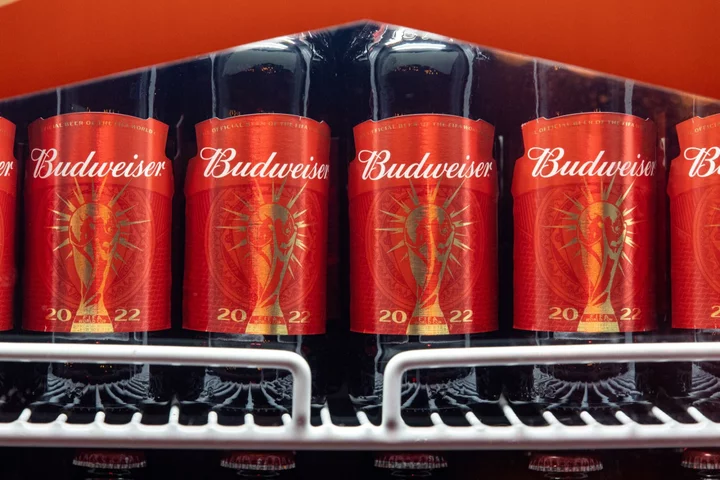
Budweiser Owner to Sponsor Football World Cups For Both Women and Men
Anheuser-Busch InBev will sponsor the women’s 2023 World Cup in a nod to one of football’s fastest-growing areas,
2023-06-08 19:23

Uber Eats Pledges to Slash Takeout Emissions and Plastic Waste
Uber Technologies Inc. pledged to eliminate carbon emissions and “unnecessary” plastic waste from its growing delivery business by
2023-06-08 16:49
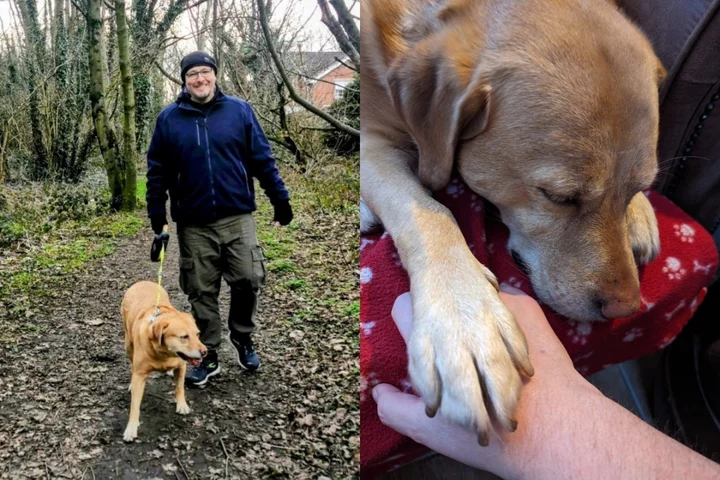
Man and pet dog both diagnosed with kidney cancer at same time
A father-of-three and his pet Labrador, both of whom were diagnosed with kidney cancer just months apart, are now enjoying what little time they have left together after the project manager’s cancer went into remission while his “best friend” only has a short time left to live. Simon O’Brien, 48, had already been crushed by the news that his eight-year-old golden lab, Bella, had just months to live after she was diagnosed with kidney cancer, when he discovered that he too was suffering from the condition in 2022. Both started experiencing similar symptoms, feeling constantly tired and thirsty, before scans revealed they had potentially lethal lumps on their kidneys, which were later diagnosed as cancer. Convinced his days were numbered, Simon visited the Marie Curie website to plan his own funeral and get his family affairs in order, even writing future letters for his three children, Ivy, 27, Callum, 18, and Niamh, 14, to open on big occasions. Thankfully, this proved to be unnecessary when he found out his cancer was in remission earlier this year after undergoing a seven-hour emergency surgery and having his kidney removed. The surgery is sadly too risky for Bella, who only has a short time to live, and so Simon is now making the most of what precious time they have left. “If you are not an animal person, then you probably don’t get it, but if you are are, then you understand,” said Simon, who lives with his wife Ruth in Aintree, Merseyside, and works as an IT project manager for NTT Data. “She is my best friend and is so much more than a dog to us, she is family. “It was like a bolt out of the blue and having two cancers in the family at the same time has been awful. “You are aware of the burden you put on others, even though they might not show it, you can see their worry and concern.” Alarm bells went off when Bella started losing weight, sleeping more and drinking lots of water in May 2022. “Bella was your typical, cliche Labrador – just a family dog, who is always happy and loves playing with children,” said Simon. “She was usually very prim and proper and groomed herself, but she had stopped and constantly had her tail between her legs, which was unusual, so we knew something was wrong.” The family took Bella to the vet, who referred her to a specialist animal hospital in Chester, where a scan confirmed she had terminal kidney cancer. “The vet said there was nothing they could do and she had months to live, and to enjoy our time left with her and make memories,” said Simon. “We’ll get her on some meds and make the most of the time you’ve got.” A few months later [October 2022], Simon, a keen half marathon runner and member of the Liverpool Running Club, started feeling exhausted after his routine training. “I was struggling to finish a training session with the guys and thought I must have really let myself go during the pandemic,” he said. “But then I found myself getting really tired and thirsty, and losing weight without wanting to.” Oblivious, he visited his GP and was referred to his local hospital for tests in November where a CT scan revealed a mass on his right kidney. He said: “(They) told me over the phone that they had found a mass on my right kidney, that they suspected it was cancer and that there was a chance it had spread to my lymph nodes. “At that point I was feeling pretty rubbish because I had continued to lose weight and was feeling very weak.” Simon and Ruth decided to break the devastating news to their children that same month. “Telling the kids was one of the hardest things, but we decided it was best to all go through it together,” he said. “Of course we played out the best-case scenario to them because they are only young. “Quietly to myself I was thinking, ‘Oh my god, I cant believe this, me and my poor dog. “At least I can get the op.” Fearing the worst, Simon launched into preparing his funeral and wrote a series of letters for future special occasions like his children’s big birthdays and weddings. “I was hoping for the best but planning for the worst,” he said. However, his cancer is now in remission after he underwent a seven-hour emergency operation at Royal Liverpool University Hospital to remove his kidney in December. “We only officially got the news last month,” he said. “Seeing the sense of relief on family and friends’ faces was very emotional – a real good feeling.” Sadly, the same cannot be said for Bella, whose cancer is terminal. Despite this, Bella, who is on £600 worth of medication a month, has lived far longer than was originally expected. “The medication is very expensive but has been amazing, and after a week or so we pretty much had her back,” Simon said. “The one thing we have kept going is taking her to the beach because she loves the waves, and for five or ten minutes she’ll forget everything and be a puppy again.” Simon, who stopped working after his diagnosis, heaped praise on his employer NTT Data, which has continued paying his salary throughout his ordeal. Determined to enjoy his time left with Bella he has since embarked on a Park Run challenge to raise money for Marie Curie, which supports terminally-ill people and their families at the end of life with care, information and support. “Everything on the Marie Curie website was in one place with support on finances, funerals, wills and all the practical information you need when you are in that situation,” he said. “It removed the worry and gave me all the information to protect my family’s future. “I wrote letters for my children and even planned my funeral songs. “It gave me peace of mind whereas my health was out of my control.” Dr Laura Chapman, medical director at the Marie Curie Liverpool Hospice, said: “This is such a sad situation, to have Simon and Bella diagnosed with the same type of cancer at the same time is something I have never heard of in my medical career. “The chances of a dog getting this relatively unusual cancer at the same time as her owner are around a million to one. It’s heartbreaking for the family who are now making cherished memories with Bella.” Matt Williams, associate director of information and support at Marie Curie, said: “I am glad that our website was there at a time when Simon needed it most. People with shock diagnosis often have nowhere to turn and need information fast. “So we have created a one-stop information hub to help people put their affairs in order and plan their funeral and finances when the worst happens.” To find help or support, visit the Marie Curie website at www.mariecurie.org.uk/help/support To find out more about Simon and Bella’s Park Run fundraising challenge, visit www.justgiving.com/page/si1of75. Read More Does sunscreen expire, what does SPF mean and which type is best? ‘Fearful’ Shannen Doherty shares devastating cancer update Cancer patients face worsening treatment delays due to lack of staff, finds report
2023-06-08 16:47

How to keep your pet cool and healthy during a heatwave
Learning how to cope in the heat can be a struggle, with the beaming rays of the sun, the inescapable humidity and the ever-rising temperatures tough to handle for many. With the Met Office forecasting a shift in weather patterns in the UK and a “warm plume” of air with highs of 30C heading our way, just imagine how your pet may be feeling. Domestic animals don’t have the luxury of being able to say when they’re feeling overheated or dehydrated, which is why you need to learn how to keep your pet as safe and healthy as possible during these extreme weather conditions. Whether you’re a dog person or own a reptile, this is how to look after your pet properly as the heatwave runs its course. Dogs Dogs with long fur will likely fare worse than their shorter-haired peers during the summer. However, they are able to cool themselves down by panting and releasing heat through their paws, as animal charity Blue Cross explains. Dogs do this because they’re unable to sweat through their skin in the same way as humans do. If a dog does overheat, they could be at risk of suffering from a serious heatstroke, with the charity explaining that “signs of heatstroke in dogs include collapse, excessive panting and dribbling”. “If you suspect your pet is suffering from the condition, move them to a cool place, preferably with a draught, wet their coat with cool - not freezing - water, and contact your vet immediately,” the charity advises. Furthermore, leaving a dog in a car on a hot day can have devastating consequences, as the temperature within the car can soar to extreme levels at a rapid rate, which is why it’s advised never to leave a dog in a car in hot conditions. To ensure that dogs are comfortable during walks on days with excessive heat, the RSPCA recommends only walking your dog in the morning or evening at the peak of summer, as doing so will help prevent them from burning their paws on the pavement or suffering from heatstroke. You must also make sure that your dog always has access to water. Cats Different types of cats may be more prone to sunburn than others, as pet agency Very Important Pets outlines. “Pale-coloured cats are vulnerable to sunburn; particularly on their ears, noses and sparsely haired areas,” the agency states, adding that, “like in humans, sunburn can sometimes lead to skin cancer.” While many cat owners may let their feline friends roam at will, the agency recommends keeping your cat indoors during the hottest time of the day, from around 11am until 3pm. You can even invest in a suncream designed specifically for pets to provide them with adequate protection from the sun’s rays. Having your cat’s fur trimmed could also be a good course of action in order to make them feel more comfortable in the heat. Furthermore, if you think that your cat may be feeling overheated, you can use a damp towel to cool them down. Just like with any other animal, cats shouldn’t be left in cars during a heatwave. Hamsters If you normally keep your hamster in a glass or plastic crate, you should be aware that the interior may be hotter than the average room temperature. This is important to keep in mind when considering where their crate is placed, as putting it on a window sill where it’s exposed to the sun could put your hamster at risk of overheating. Hamster blog site Hammysworld also suggests placing the crate on a stone or tiled floor during the day if possible in order to help the animals remain cool and comfortable. You could even place a ceramic tile within the cage as a means of lowering the temperature of the interior even more. Another trick that the outlet recommends is to place a frozen bottle of water on the side of the outside of the crate while also regularly refreshing your pet’s water supply. Fish You may think that your fish is safe in their tank of water as those outside battle the intense heat and humidity. However, the temperature of the tank can easily rise if the room temperature is higher than normal. If you have heaters in your fish tank, it would be wise to turn them off, Tropical Fish Site recommends, while it may also be worth reducing the normal temperature of the tank if possible. Another method that you can employ to help keep the water cool is to put bags filled with ice at the bottom of the tank. Birds While birds living in exotic locations around the world may be used to hotter climates, chances are that domesticated birds won’t have the same thresholds for higher temperatures. According to Bird Supplies, birds may be very susceptible to sudden changes in their environment, which is why knowing how to keep them cool during a heatwave is important. “Your average bird has a standard core temperature of around 105F or 40C, and are very susceptible to overheating,” the site states. Some signs to look out for that may indicate that your bird is overheating include if its panting, holding its wings far away from its body or exhibiting anxious behaviour. Many birds naturally enjoy spending time outdoors. However, if this is the case, you should make sure that the outdoor space that your bird frequents is equipped with shaded areas. On top of that, the site states that you should make sure to replace the bathing dish of water at the bottom of your bird’s cage at least once a day, while also ensuring that it has a decent supply of clean water to drink. Reptiles and amphibians Reptiles and amphibians are ectothermic or cold-blooded, which means that their body temperature relies on external sources, as detailed by Encyclopaedia Britannica. With that in mind, if the temperature of your home is higher than normal, then your pet snake or lizard could suffer in the hot conditions. Pet store Just For Pets advises first checking whether the temperature of your home falls within your animal’s ideal range. If the temperature exceeds its ideal range, then you can cool them down by providing them with clean water and keeping a small fan close by. Furthermore, you could utilise a similar technique to the one advised for hamster owners by placing a ceramic tile in its enclosure that it can use to lower its body temperature (that you could cool first in the fridge). Plus, if you place an iced bottle of water nearby, it could help reduce the temperature of the air, thus providing your pet with a more bearable environment. Read More How to tell if you have Covid or heatstroke Why do heatwaves in the UK feel hotter than abroad? How to protect pets from wildfire smoke amid air quality alert Dog owners shocked after vet shares list of ‘toxic’ substances Man faces backlash for wanting to bring six-month -old dog to the gym
2023-06-08 16:26
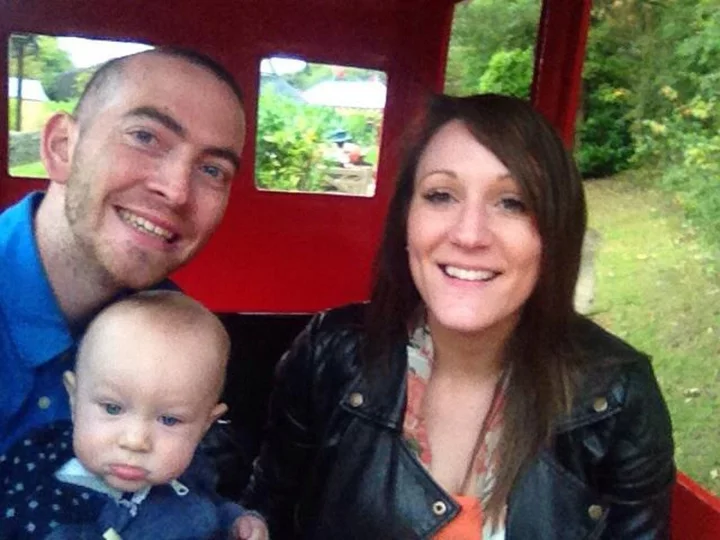
Man who had terminal cancer was told to ‘breathe into a paper bag’
A man who died of brain cancer was misdiagnosed with anxiety and told to “breathe into a paper bag”. Keith Evans was 21 when he collapsed during a suspected panic attack in February 2010. He later developed painful headaches and was given tools to manage his anxiety. Weeks later during a visit to his GP, he was referred for an MRI scan where he was diagnosed with a glioblastoma, a fast-growing and aggressive brain tumour. Despite being given six months to live, Keith survived five-and-half years. He died aged 27 in October 2015. Keith’s mum, Lorraine, from Bulkington, Warwickshire, said: “We felt like paranoid parents. “Although at the time he was interviewing for a new job, we thought this could have caused some unrest but being told he was having panic attacks seemed odd. “After multiple occasions where we called 999 we were told the same thing and Keith was given ways to manage his anxiety; including breathing into a paper bag.” Throughout his cancer battle, he raised tens of thousands of pounds for charity whilst undergoing radiotherapy and life-long chemotherapy treatment. Lorraine added: “Keith wanted to be one of the 5% of GBM patients who survive more than five years. “He made dramatic changes to his lifestyle and took up cycling as he was no longer allowed to drive. “He made a name for himself within the cycling community. A favourite event which came about inspired by his journey was called Ride on Keith. “He got to take part in the event before coming off his bike due to a seizure in 2015. Soon his mobility deteriorated, and a scan showed the tumour had returned.” This weekend, dozens of cyclists are expected to take part in the final bike ride in memory of the father-of-one from Bulkington who died of brain cancer in October 2015, raising funds for Brain Tumour Research. The final ‘Ride on Keith’ event will take place this Saturday (10 June). Since its inception the event has raised more than £7,500 for Brain Tumour Research. Amongst the riders will be Keith’s widow, Harriet Evans and their son, 10-year-old Joel, who was just one when Keith died. The 25, 55 and five-mile children’s friendly cycle ride will set off from Makins Fishery on Bazzard Road at 8:30am. Lorraine said: “For over a decade, we’ve helped to raise the profile of brain tumours and worked towards driving more funding to find a cure for the disease, with Keith at the helm of the events when he was alive. “He achieved so much in the five-and-half-years he survived including cycling 275 miles from London to Paris and covering the 1,000 mile route from Land’s End to John O’Groats over a ten-day period - all during treatment. “Since his death, the event has been a fantastic way to remember him and this year we hope to create lasting memories whilst raising money for Brain Tumour Research. “Although this is the last event of its kind, we will continue to work with the charity to raise awareness for more research into the disease.” One in three people know someone affected by a brain tumour. They kill more children and adults under the age of 40 than any other cancer, yet just 1% of the national spend on cancer research has been allocated to brain tumours since records began in 2002. Mel Tiley, community development manager at Brain Tumour Research, said: “We’re grateful to Keith’s family for sharing his story. “It’s wonderful to hear of everything Keith achieved after receiving a shocking diagnosis. “His story reminds us that brain tumours are indiscriminate, and they can affect anyone and any age. “If we are to understand the complexity of each diagnosis, we need more funding to research the disease.” Read More ‘Fearful’ Shannen Doherty shares devastating cancer update Cancer patients face worsening treatment delays due to lack of staff, finds report Origins of masturbation traced to primates 40 million years ago ‘Fearful’ Shannen Doherty shares devastating cancer update Fitness fanatic, 26, diagnosed with stage 4 cancer after feeling dizzy Do yoga to cut cancer risk, say scientists
2023-06-08 16:21

Air India Flight Heads to San Francisco After Emergency Landing in Russia
An Air India Ltd. plane carrying passengers and crew who had been diverted to Russia due to an
2023-06-08 15:28

I tried anti-bloating pills for two weeks, and now I know the gassy truth
Our bellies have always been the target of derision and ire. Long have they been poked and prodded. Sighed at and sucked in. Reprimanded and insulted. But ever since social media became the new WebMD for chronic self-diagnosers, it’s been open season on every little bodily function. Every involuntary twitch, skin bump and mood shift has been analysed to death – but none more so than the dreaded bloat. Stomach bloating can happen for all sorts of reasons. Often the main culprit is a big meal. It’s that feeling of being uncomfortably full and needing to undo the top button of your jeans, as if you’ve just had a particularly heavy Sunday roast. Unless you have real food intolerances or irritable bowel syndrome (IBS), or the symptom is caused by hormonal changes, bloating is the body’s normal reaction to eating a little too much. It usually subsides after a few hours. But this is 2023. A bit of bloating is no longer something you can just wait a few hours to get rid of – social media dictates that it needs to be gone immediately, and if it doesn’t then there must be something wrong with you. And not to stop there, either. You should also be cutting 10 different types of foods out of your life, doing five simple exercises 200 times a day and taking an assortment of supplements and pills because God forbid your stomach be round for the next two hours. According to Dr Tamara Alireza, a functional medicine specialist at Skinfluencer London, bloating should be taken seriously if it doesn’t come and go with food. If it becomes a chronic problem, or is accompanied by other symptoms such as persistent stomach and pelvic pain, changes to bowel habits, unexpected weight loss, fatigue and fever, vomiting, or bleeding, it may be something different entirely. “Excess bloating can be linked to IBS, inflammatory bowel disease (IBD), and coeliac disease, but also to more serious conditions,” she says. But we are a society obsessed with quick fixes, and anti-bloating pills have become a popular “cure” for the woes of a distended belly. Last month, fitness influencer Sam Cutler took it to new heights when she provided the pills for her wedding guests during the meal. Some viewers of her TikTok video – which sparked so much horror that it rapidly went viral – claimed that the pills were essentially “laxatives”. The glut of brands that have emerged in recent years would disagree, though. Many claim to use all-natural ingredients to “speed up digestion” and reduce gas without a laxative effect. Admittedly, curiosity got the better of me. I am lucky enough not to suffer from any particularly gut-churning conditions, but I do have eyes bigger than my stomach. It means I regularly end up regretting wearing trousers to a meal, cursing myself as my belly strains against the waistband. Could these pills really make me feel more comfortable after a big dinner, or would they just lead to some unfortunate toilet habits? I am kindly sent a couple of packs by Wild Dose, which lists extracts of ginger, liquorice, fennel seed, turmeric, peppermint leaf and dandelion root alongside a “proprietary enzyme complex” and a probiotic blend in each brown pill. They smell very herbal and are a rather unappealing greenish-brown colour – it initially makes me wonder if it’s an omen for what my guts are about to experience. After two weeks of taking them daily, I found that they did make a slight difference in my post-meal stupor and I feel comfortable quicker than before. However, the change has been marginal and, if anything, they made me more gassy, to the chagrin of my significant other. The medical community is reluctant to support the efficacy of similar supplements, as there remains little clinical research to back up their claims. Dr Alireza describes anti-bloat pills as a “Band-Aid on a fire hydrant” for people who have genuine problems with their gut. “I generally would not recommend taking any pills to counteract the bloating,” she says, “rather I would be keen to first determine the source of the issue.” She points to her practice, which aims to determine the root cause of symptoms and treat it – instead of providing temporary fixes. But I think the real reason behind social media’s obsession with bloating has nothing to do with #guthealth. Instead, it is our inherent fatphobia and fear of fatness that fuel this battle against the bloat. Are we so afraid of looking fat for even a couple of hours that we flock to pills and exercises with such abandon? Given the way people have fallen over themselves to get their hands on Ozempic, a drug intended to help diabetes patients but which has made a name for itself as a weight-loss miracle, it appears the answer is yes. It’s no mistake, either, that women are the primary targets for anti-bloating content online. Studies show that women are twice as likely to experience it as men, particularly during menstruation and menopause because of hormonal fluctuations. But the expectation for women to maintain at least the illusion of thinness at all times is also much higher. Many of us learned at an early age how to suck in our stomachs and – even as adults – keep them sucked in pretty much all day. As I write this, I realise that I’ve been subconsciously engaging my core muscles despite sitting behind a desk. No wonder the promise of no more bloating is so appealing, if it makes looking mildly smaller less of a chore. Joanna Dase, fitness expert and operations director of female-focused health clubs Curves, says that any medical conditions should be diagnosed by qualified professionals rather than social media. She acknowledges that while bloating can affect body image, no one should worry about your normal, natural responses to digestion. “If you have a professional opinion and there is no health problem related to it, then you just need to have an actual understanding of your body and its natural functions, and being OK with yourself. It’s just how your body breaks down food.” Read More Wellness gurus claim your hormones are out to get you – but is it just another scam? ‘Thanks Pfizer’: The weird world of shakes, health anxiety and illness online A One Direction fan claimed she had a brain tumour. Five years after her death, we still need answers How to protect pets from wildfire smoke amid air quality alert Gamer finds indent in head from prolonged headset use after shaving his hair From masks to AC units: All the dos and don’ts to keep safe from wildfire smoke
2023-06-08 13:57
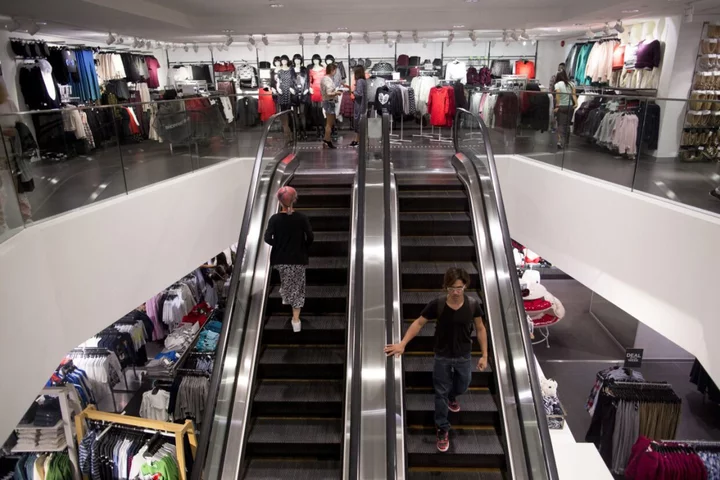
Hong Kong’s $900,000 a Month Retail Lease Is Biggest Since Covid Ended
A mall in Hong Kong’s premier shopping district of Tsim Sha Tsui rented three floors to a dining
2023-06-08 10:25
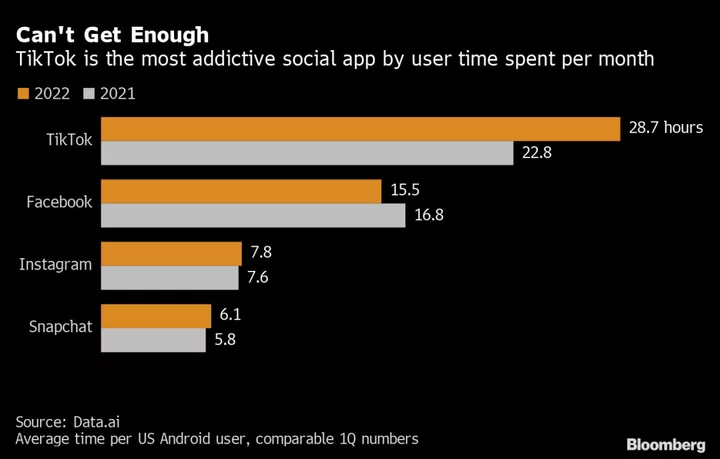
TikTok Seeks $20 Billion E-Commerce Business Despite US Setback
ByteDance Ltd.’s TikTok aims to more than quadruple the size of its global e-commerce business to as much
2023-06-08 09:27

Gamer finds indent in head from prolonged headset use after shaving his hair
A Twitch streamer was left stunned after he livestreamed himself shaving his hair for charity, only to find an indent on his head from wearing his gaming headset. The gamer, who goes by Curtoss on streaming platform Twitch, went live on 3 June to raise money for the charity organisation, Leukemia & Lymphoma Society. While shaving his head for charity, viewers witnessed Curtoss’s shock when he discovered that his head shape had completely changed due to his prolonged headset use. “The shaver’s working like a champ,” Curtoss said, as he began shaving his hair down the middle of his head. Within seconds, he noticed an indent across the top of his head. “Dude, I have an indent like right here, this is where my headphones go!” he told viewers. “I have a f***ing headphone indent on my head! What the f***?” “I always thought that was just my hair,” he added. It didn’t take long for Curtoss’s reaction to go viral on social media. He shared a clip of his mid-shave discovery to his TikTok, while on Twitter, a video of his head indent received more than 42 million views. Surprisingly, Curtoss wasn’t the only one to find an indent on their head from wearing headphones. “Welcome to the club,” replied one Twitter user, who shared photos of two gamers with indents on their skulls. “We all got one of those at one point or another,” another gamer joked. “Tell me why I’ve just rubbed my head to make sure I don’t have one,” shared one person, while another wrote: “New fear just unlocked” “This is why I will never wear a headset for prolonged time periods,” said someone else. So, can prolonged headphones really cause permanent damage? Yes and no. While there are risks to wearing headphones for long periods of time, head indents are temporary. In fact, Headphonesty reports that it takes at least 135 kg to cause a minor fracture to the skull. However, streamers can get “headphone hair” from wearing a headphone headband for too long, wherein the headset puts too much pressure on the head and flattens the hair. But much like indents on the scalp, hair should gradually return to its original shape in just a few minutes. In order to help get rid of headphone dents on the scalp or hair faster, gamers can gently massage the dent and the surrounding area. A hot shower might help return the head to its original shape, but taking breaks from wearing headphones is the most effective way to avoid causing a dent in the scalp. @curtoss please don't call it "Brain Valley" ?♂️ #twitch #livestreamfails #gamer ♬ original sound - nintendo loser While gamers and Twitch streamers don’t need to worry about changing the shape of their head, prolonged headphone use can lead to permanent hearing loss. The World Health Organization (WHO) estimates that around 50 per cent of people ages 12 to 35 are at risk of hearing loss due to prolonged and excessive exposure to loud sounds, including through headphones. According to the American Osteopathic Association, many headphones and MP3 players today can produce sounds up to 120 decibels, which is equivalent to a sound level at a rock concert. At 120 decibels, hearing loss can occur after only about an hour and 15 minutes. Experts suggest that people should exceed no more than 60 per cent of maximum volume when using headphones. The Independent has contacted Curtoss for comment. Read More Ukrainian schoolboy to buy home for his mother after selling Minecraft server Male characters in video games have 50 per cent more dialogue than female counterparts What is Discord, the chatting app tied to classified leaks? Mother sparks debate over parent who wouldn’t give her daughter a slice of cake How to protect pets from wildfire smoke amid air quality alert ‘Fearful’ Shannen Doherty reveals her cancer has spread to her brain
2023-06-08 06:59

Mother sparks debate after she criticised parent who wouldn’t give her daughter a slice of birthday cake
A mother has sparked a debate after criticising a parent who wouldn’t give her child a piece of birthday cake. Kat Stickler shared a recent video on TikTok about her experience with a fellow mother. She confessed that she was going to “mom shame” someone, before noting that the only other people she’s “mom shamed” before were herself and her own mother. Before adding another parent to her list, she asked viewers if she was “entitled” or if what happened was “messed up”. In the video, she explained how she and her daughter noticed a group of children at a birthday party in a park. “Two hours ago, literally right now, MK and I were at the park in our neighbourhood,” she said, referring to her daughter. “And it was us and this birthday group…These kids are having their birthday party. MK’s playing with them for half an hour. They’re making friends, it was nice. It was actually very cute.” Stickler then explained that when it was time to sing happy birthday, her three-year-old joined the rest of the children at the party. “She’s one of the group right now. They’re welcoming her with open arms,” she said. “Or, so I thought.” When she noticed her daughter’s “intention of grabbing a piece of cake,” she decided to follow her child “to make sure it’s OK, as a formality.” “Honestly, I was like, obviously it’s OK. It’s cake. It’s a massive cake. There’s lots of leftover pieces,” she explained. However, Stickler said that the party host then stepped in and stopped MK from getting a slice of cake: “The mother takes the plate away from MK, and gets down to her level, says: ‘You cannot eat this cake, OK. This is not your birthday party. These are not your friends. Where’s your mother?’” She concluded her video by placing her hands over her mouth, to show her shocked reaction to the parent’s comments. As of 7 June, Stickler’s video has more than 10.1m views, with many people in the comments sympathising with MK. They also criticised the birthday host for how she spoke to the three-year-old. @katstickler No cake for me thanks, I’m full…of rage? ♬ original sound - Kat “That’s so sad,” one wrote, while another added: “My jaw dropped.” “The part that gets me is the ‘these are not your friends,’” a third wrote. “They’ve been playing for a half an hour. To kids, that’s friendship.” Other people shared how they would have handled the situation if a child they didn’t know wanted a piece of cake at a party. “I may have said, ‘Let’s check with your mom if it’s okay for you to have a piece?’ Allergies ya know. Then a new friend would have been given cake,” one wrote. Another agreed: “The only appropriate response is, ‘Run and ask your mom if you’re allowed to have cake.’ Reengages the parent and gives you a second to count the slices.” However, some people said that they wouldn’t have let their children hang out with the children at this birthday party in the first place. “This is a hard spot. I wouldn’t have let my kids walk over personally. We weren’t invited and playing together at the park isn’t a invite to a private moment,” one wrote. “But also I would never take cake from a child and say that. I would’ve asked for mom first.” “Personally I’d avoid the situation and move my kids,” another added. “I’m normally the one to encourage connections but not at a party my kid wasn’t invited to. Speaking to Today, Stickler noted that after this incident happened, she took her child to get a dessert of her own. She also said that MK was “totally fine” after hearing the parent’s remark. “People have been asking me, ‘What did you say to the mom?’ The mom was literally the least of my concerns,” Stickler explained. “I was worried about MK.” The Independent has contacted a representative for Stickler for comment. Read More Mother reveals the sweet meaning behind viral graduation gift for her daughter Daughter reveals stark contrast between her parents’ homes: ‘Complete opposites’ Mother hit with deluge of abuse for taking toddler’s packed lunch to a restaurant How to protect pets from wildfire smoke amid air quality alert ‘Fearful’ Shannen Doherty reveals her cancer has spread to her brain From masks to AC units: All the dos and don’ts to keep safe from wildfire smoke
2023-06-08 06:54

NYC Smoke Upends Outdoor Fun From Central Park to Yankee Stadium
The smoke has ruined a perfectly good night for outdoor activities in New York City. There won’t be
2023-06-08 06:17
